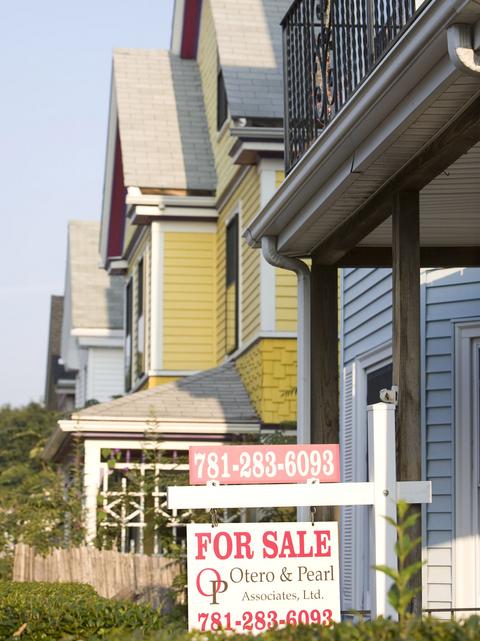
Boston’s record growth and real estate boom has been accompanied by ambitious plans to increase its affordable-housing production, as well as concerns that the city is becoming too expensive for anyone but the wealthy to live in — as the mayor pointed out in a recent op-ed. In it, Mayor Walsh called for the real estate industry to work with policymakers in order to ensure Boston works for everyone. I would like to second the mayor’s call to action: We must identify ineffective policies and applaud novel solutions to realize our shared vision and goals.
Before all else, we need to agree that the pursuit of increased taxes, development restrictions and prolonged regulation has been impractical. As we work together to achieve housing demands for all Bostonians, we must also ensure that we do not trigger unintended price increases, nor dampen the potential supply.
For example, the recent proposal of a 6 percent transaction tax on home sales — as well as a 25 percent transfer tax on repeat sales occurring within two years — while commendable in its intention to keep home prices sustainable and raise additional revenue for our city, would have the opposite of its intended effect, adversely impacting the real estate industry and Boston’s economy.
Media reports suggest that the proposed tax would have resulted in more than $50 million in tax revenue on the single sale of 53 State Street last December. Although mathematically true, the tax revenue forecast fails to consider the market impact of a $50 million tax bill. I am certain that if a 6 percent gap between the asking and bidding price materialized, that sale would have never taken place, raising doubt as to how much tax revenue would actually be created by the proposed bill. Anecdotally, as a real estate broker, I have seen transactions eliminated by far narrower bid-ask spreads. A lack of transaction liquidity will pose ominous conditions for Boston and its housing market collectively.
Another example of excessive bureaucracy is the recent Interim Planning Overlay District (IPOD) that was instituted in South Boston. IPOD requires developers to go through a lengthy and costly process to renovate or create housing — even for the smallest of projects. This political measure has deliberately slowed the creation of new housing and needs to be eliminated. Boston will be better served when we spend our collective energy to maximize the bedroom count throughout the city. This can be accomplished in submarkets such as South Boston via the renovation of the classic triple decker and the introduction of new social living concepts, such as micro units — an effective relief valve in housing creation.
As we appreciate the urgency for an operative and equitable housing solution, we need to eliminate the bottleneck. The significant amount of red tape for new development unnecessarily extends completion times — thus increasing labor costs — which are then absorbed by homeowners and renters. As development continues to slow and associated costs increase, Boston will not be able to keep pace with the demand. Therefore, the city must modernize its policies for developing and transacting real estate.
While we wait for policies to adapt and reform, new and inventive programs are taking seed in other parts of Greater Boston. The elected officials in Cambridge, for example are leading by example in proposing a new “100% Affordable Housing Zoning Overlay”, which would enable developers who exclusively develop affordable housing to build taller buildings with an improved permitting process — all while allowing neighborhoods to have input on the design review.
Based on the success of improved density programs in other cities, Mayor Walsh is trialing “density bonuses” in pilot areas through a program called Housing Innovation Lab, allowing developers to build higher in exchange for more affordable units. Another example is Mayor Walsh’s efforts with rezoning Dorchester Avenue in order to create greater density. There, the South Boston community collaborated to redesign the zoning process via an open discussion about density and building heights. Although the rezoning has stalled, developers are optimistic that the proposed density will be approved by the zoning board of appeals. This has led to a flurry of investments in the corridor, with new housing proposals soon to be made public. Innovative legislation and galvanizing all stakeholders will lead the way to smarter growth.
With Boston’s 400th birthday approaching in 2030 and the continued unprecedented growth within and around city limits, I welcome the mayor’s call to join him and the BPDA in creating solutions to the challenge that affordable housing presents. Boston is a great city, on a great trajectory — and we can’t afford to get this wrong.


